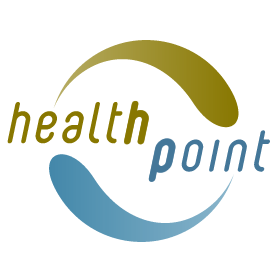Central Auckland > GPs / Accident & Urgent Medical Care > National Hauora Coalition >
The Doctors St Heliers
General Practice (GP) Service
Today
Description
We are a Cornerstone accredited general practice aiming to provide quality healthcare for all patients, with an emphasis on health education and preventative medicine.
Staff
Nursing Staff: Gayle (Nurse Lead), Ellen, Robyn, Jane, Kathy and Deborah
Receptionists: Puspha, Kimberley, Andrea, Cathy, Jude, Selena, Jay
Practice Administrator: Tania Webb
Medical Centre Manager: Akshita Nama
Doctors
-

Dr Robert Cole
General Practitioner
-

Dr Angela Jakobsen
General Practitioner - Vocationally Registered
-

Dr Jo Kamphof
General Practitioner
-

Dr Dalice Keogh
General Practitioner - Vocationally Registered
-

Dr Tracey Opperman
General Practitioner - Vocationally Registered
-

Dr Jacob Rollo
General Practitioner - Vocationally Registered
-

Dr Upeksha Settinayake
General Practitioner - Vocationally Registered
-

Dr Stephanie Taylor
General Practitioner - Vocationally Registered
-

Dr Kerryn Van Rij
General Practitioner - Vocationally Registered
-

Dr Hendrik Van Roekel
General Practitioner - Vocationally Registered
-

Mr Graeme Washer
General Practitioner
Ages
Adult / Pakeke, Child / Tamariki, Older adult / Kaumātua, Youth / Rangatahi
How do I access this service?
Enrolled patients
We warmly welcome new patients
When you enrol with us, some of the benefits include:
- Reminders and recalls for important health management
- Pay less to see the doctor than non-enrolled patients
- Access to our online patient portal to book appointment, order repeat prescriptions and to view lab test results
- There is more information here about why it’s great to be enrolled
Enrolling with us means you understand and accept our standard terms and conditions.
There’s no need to come into the clinic, you can enrol online - it’s secure and confidential. The online form will guide you and you will need to upload suitable identification.
"Enrol Now"
Make an appointment
Call 575 9491 to book an appointment or click here to book online.
Website / App
For enrolled patients, we recommend using our patient portal, The Doctors App. Log in via the app on your phone or the desktop version to view available practitioners and appointments.
Please note: Booking through the app is available for enrolled patients only. If you don’t have a login, please create an account here. If you have just enrolled, please note that you won’t have access to The Doctors App until we have confirmed your enrolment via email. If you are unsure, please call us.
To Download ‘The Doctors App’ on your mobile:
- Scan the QR code below, or click on the Apple or Google Play buttons which will take you directly to the app store to download it.
2. Select ‘Create Account’ and enter the unique practice invite code: STHE
3. Enter your details. Please make sure your name, date of birth, and mobile number match the details you gave us when you enrolled with us.
Enrolling new patients
Fees
Enrolled Patient Fees
| Age Range | Without CSC | With CSC |
|---|---|---|
| Under 6 years | Free | Free |
| 6 to 13 years | Free | Free |
| 14 to 17 years | $65.00 | $13.00 |
| 18 to 24 years | $70.00 | $19.50 |
| 25 to 44 years | $80.00 | $19.50 |
| 45 to 64 years | $80.00 | $19.50 |
| 65+ years | $80.00 | $19.50 |
Above fees are for standard consultations.
The Cost of Healthcare in New Zealand
Healthcare in New Zealand is a mixture of free and subsidised services, where patients pay a fee to cover some of the costs of providing healthcare services.
Free and subsidised care is only available to New Zealand residents, with exceptions in some cases for visitors from countries like the UK and Australia where New Zealand has reciprocal agreements. Ask our reception team if you think you may be entitled to a funded service for your visit or have any other questions on our fees.
Useful Information About Fees at The Doctors
- Payment is due the day of consultation or service - prior to your appointment.
- Repeat prescriptions must be paid for before the prescription is issued or sent to a pharmacy.
- All fees are based on a single appointment, extended consultations may incur additional charges. Fees may vary due to the time taken and materials used.
- Medical consumables will be charged separately.
- Weekends, afterhours and public holidays will incur additional fees
- Accounts may only be set up with the approval of the Medical Centre Manager.
- Accounts that are unpaid will be sent to Debt Collection. The debtor (patient) is responsible for all debt collection fees.
- Normal consultation charges apply to Virtual or Phone Consultations.
- Newly enrolled patients may require a double appointment for their first visit. A double appointment fee will apply.
- Four hours cancellation notice for a booked appointment is required. Non-attendance will incur a normal consultation fee.
- Our practice nurses are skilled professionals and there is a fee when you see them for advice or services.
- If you have a Community Services Card, you may be eligible for a reduced consultation or prescription fee.
- If not paid in full an additional $10.00 fee will be charged for all age groups
Hours
| Mon – Fri | 8:00 AM – 5:30 PM |
|---|
Please note our reception phones are diverted to after hours service at 4.30pm. This is a phone service answered by a nurse who can help with urgent medical advice.
Public Holidays: Closed Good Friday (18 Apr), Easter Sunday (20 Apr), Easter Monday (21 Apr), ANZAC Day (25 Apr), King's Birthday (2 Jun), Matariki (20 Jun), Labour Day (27 Oct), Auckland Anniversary (26 Jan), Waitangi Day (6 Feb).
Preferred urgent care clinic out of hours: White Cross Ascot - 24/7 Urgent Care.
Languages Spoken
English
Services Provided
Immunisation is the safest and most effective way to provide protection for you and your tamariki’s health. For more information view the NZ immunisation schedule.
Immunisation is the safest and most effective way to provide protection for you and your tamariki’s health. For more information view the NZ immunisation schedule.
- Pregnancy vaccinations
- Childhood immunisation programme
- 45 year old vaccinations
- 65 year old vaccinations
- Adult flu vaccine
- Child flu vaccine
- Diphtheria / Tetanus / Pertussis (whooping cough) vaccine
- Human Papillomavirus (HPV) vaccine
- Measles / Mumps / Rubella (MMR) vaccine
- Meningococcal vaccine
- Shingles vaccine
- Travel vaccinations
- COVID-19 vaccination and boosters
Immunisation is the safest and most effective way to provide protection for you and your tamariki’s health. For more information view the NZ immunisation schedule.
Your GP's surgery is far more than a place to go when you are feeling unwell and needing a quick cure. The doctor who sees you has gone through an extensive medical training to equip her or him to help children and adults of all ages with a range of physical and emotional difficulties. GPs are at the centre of the healthcare hub and will be aware of services and expertise that are available locally and further-a-field. GPs are also aware of the link that stress and unhappy life events have on physical health so know when to suggest a talking therapy rather than medication.
Your GP's surgery is far more than a place to go when you are feeling unwell and needing a quick cure. The doctor who sees you has gone through an extensive medical training to equip her or him to help children and adults of all ages with a range of physical and emotional difficulties. GPs are at the centre of the healthcare hub and will be aware of services and expertise that are available locally and further-a-field. GPs are also aware of the link that stress and unhappy life events have on physical health so know when to suggest a talking therapy rather than medication.
Your GP's surgery is far more than a place to go when you are feeling unwell and needing a quick cure. The doctor who sees you has gone through an extensive medical training to equip her or him to help children and adults of all ages with a range of physical and emotional difficulties. GPs are at the centre of the healthcare hub and will be aware of services and expertise that are available locally and further-a-field. GPs are also aware of the link that stress and unhappy life events have on physical health so know when to suggest a talking therapy rather than medication.
Health screening tests check for health conditions or early warning signs of disease.
Health screening tests check for health conditions or early warning signs of disease.
- Cervical screening
Health screening tests check for health conditions or early warning signs of disease.
Primary care practices offer a range of services and are able to deal with most minor accident care. If they are not able to deal with an injury they will refer on to the appropriate service.
Primary care practices offer a range of services and are able to deal with most minor accident care. If they are not able to deal with an injury they will refer on to the appropriate service.
Primary care practices offer a range of services and are able to deal with most minor accident care. If they are not able to deal with an injury they will refer on to the appropriate service.
Each GP surgery or primary care practice will have its own procedure for repeat prescribing but the following rules are common to most, if not all. Patients who are well-known to the practice who have a stable condition like asthma, hypertension or diabetes could be allowed to get a repeat prescription for up to six months. Repeat prescriptions are never given to patients who are not known to the practice and there is probably a blanket ban on repeats for narcotics and other drugs that could be misused as doctors are expected to monitor these drugs carefully. Repeats can be ordered through Manage My Health Patient Portal sign up for it now See website for conditions
Each GP surgery or primary care practice will have its own procedure for repeat prescribing but the following rules are common to most, if not all. Patients who are well-known to the practice who have a stable condition like asthma, hypertension or diabetes could be allowed to get a repeat prescription for up to six months. Repeat prescriptions are never given to patients who are not known to the practice and there is probably a blanket ban on repeats for narcotics and other drugs that could be misused as doctors are expected to monitor these drugs carefully. Repeats can be ordered through Manage My Health Patient Portal sign up for it now See website for conditions
Each GP surgery or primary care practice will have its own procedure for repeat prescribing but the following rules are common to most, if not all. Patients who are well-known to the practice who have a stable condition like asthma, hypertension or diabetes could be allowed to get a repeat prescription for up to six months. Repeat prescriptions are never given to patients who are not known to the practice and there is probably a blanket ban on repeats for narcotics and other drugs that could be misused as doctors are expected to monitor these drugs carefully.
Repeats can be ordered through Manage My Health Patient Portal sign up for it now
See website for conditions
Sometimes your doctor needs to take a sample of blood or urine either to discover what is wrong with you or to measure something in your blood so that the right medication is given to you. These tests could be anything from blood sugar to a full blood count or a sample of tissue to test for cancer. While urine can generally be tested in the surgery, blood and other specimens are usually sent away for testing at a laboratory. Most results come back within 48 hours unless a very rare test is needed which has to go to a specialist lab further away when it might take a little longer.
Sometimes your doctor needs to take a sample of blood or urine either to discover what is wrong with you or to measure something in your blood so that the right medication is given to you. These tests could be anything from blood sugar to a full blood count or a sample of tissue to test for cancer. While urine can generally be tested in the surgery, blood and other specimens are usually sent away for testing at a laboratory. Most results come back within 48 hours unless a very rare test is needed which has to go to a specialist lab further away when it might take a little longer.
Sometimes your doctor needs to take a sample of blood or urine either to discover what is wrong with you or to measure something in your blood so that the right medication is given to you. These tests could be anything from blood sugar to a full blood count or a sample of tissue to test for cancer.
While urine can generally be tested in the surgery, blood and other specimens are usually sent away for testing at a laboratory. Most results come back within 48 hours unless a very rare test is needed which has to go to a specialist lab further away when it might take a little longer.
All women and people with a cervix aged 25 – 69 who have ever had intimate skin-to-skin contact or been sexually active should have regular cervical screening. This includes women who have been immunised against HPV. Together, regular screening and HPV immunisation provide the best protection against cervical cancer. There are now more options for how you have cervical screening done: a simple vaginal swab test for HPV, either done yourself or with help from a healthcare professional a cervical sample taken by a healthcare professional (used to be known as a smear test). Talk with your healthcare provider to decide which option is best for you. If HPV is found, you may need to have a follow-up test or be referred directly for colposcopy. If you’ve not yet had HPV testing, you should be screened 3 years after your last test (or 1 year if immune deficient). Once you have had an HPV test, and providing HPV is not found, your next screening will be in 5 years (or 3 years if immune deficient). For more information: Cervical screening | Time to Screen - National Screening Unit
All women and people with a cervix aged 25 – 69 who have ever had intimate skin-to-skin contact or been sexually active should have regular cervical screening. This includes women who have been immunised against HPV. Together, regular screening and HPV immunisation provide the best protection against cervical cancer. There are now more options for how you have cervical screening done: a simple vaginal swab test for HPV, either done yourself or with help from a healthcare professional a cervical sample taken by a healthcare professional (used to be known as a smear test). Talk with your healthcare provider to decide which option is best for you. If HPV is found, you may need to have a follow-up test or be referred directly for colposcopy. If you’ve not yet had HPV testing, you should be screened 3 years after your last test (or 1 year if immune deficient). Once you have had an HPV test, and providing HPV is not found, your next screening will be in 5 years (or 3 years if immune deficient). For more information: Cervical screening | Time to Screen - National Screening Unit
All women and people with a cervix aged 25 – 69 who have ever had intimate skin-to-skin contact or been sexually active should have regular cervical screening. This includes women who have been immunised against HPV. Together, regular screening and HPV immunisation provide the best protection against cervical cancer.
There are now more options for how you have cervical screening done:
- a simple vaginal swab test for HPV, either done yourself or with help from a healthcare professional
- a cervical sample taken by a healthcare professional (used to be known as a smear test).
Talk with your healthcare provider to decide which option is best for you.
If HPV is found, you may need to have a follow-up test or be referred directly for colposcopy.
If you’ve not yet had HPV testing, you should be screened 3 years after your last test (or 1 year if immune deficient). Once you have had an HPV test, and providing HPV is not found, your next screening will be in 5 years (or 3 years if immune deficient).
For more information: Cervical screening | Time to Screen - National Screening Unit
Liquid nitrogen is a fast, effective treatment provided in many practices to treat viral warts, sun damaged skin, skin tags and many benign cosmetic lesions. It comes in a container with a nozzle and is usually applied by swab or spray. Often one treatment is all that is needed but sometimes it may need repeating after two weeks. Because it cannot be stored for too long, you will often find that your GP will treat a number of patients one after the other. For more information click here.
Liquid nitrogen is a fast, effective treatment provided in many practices to treat viral warts, sun damaged skin, skin tags and many benign cosmetic lesions. It comes in a container with a nozzle and is usually applied by swab or spray. Often one treatment is all that is needed but sometimes it may need repeating after two weeks. Because it cannot be stored for too long, you will often find that your GP will treat a number of patients one after the other. For more information click here.
Liquid nitrogen is a fast, effective treatment provided in many practices to treat viral warts, sun damaged skin, skin tags and many benign cosmetic lesions. It comes in a container with a nozzle and is usually applied by swab or spray. Often one treatment is all that is needed but sometimes it may need repeating after two weeks.
Because it cannot be stored for too long, you will often find that your GP will treat a number of patients one after the other.
For more information click here.
Another service offered to you at your GP surgery (primary care practice) is advice and immunisation before you go to another country. While you are likely to have the immunisations needed to live in New Zealand, there may be other injections you need to protect yourself before going for example to Africa or South America. In some places you will need protection from rabies or malaria. Yellow fever vaccinations are only available at approved centres; please click here to view the centres in New Zealand. Your doctor will be able to tell you what diseases you will need to be protected from in any named country and advise you on other medical matters.
Another service offered to you at your GP surgery (primary care practice) is advice and immunisation before you go to another country. While you are likely to have the immunisations needed to live in New Zealand, there may be other injections you need to protect yourself before going for example to Africa or South America. In some places you will need protection from rabies or malaria. Yellow fever vaccinations are only available at approved centres; please click here to view the centres in New Zealand. Your doctor will be able to tell you what diseases you will need to be protected from in any named country and advise you on other medical matters.
Another service offered to you at your GP surgery (primary care practice) is advice and immunisation before you go to another country. While you are likely to have the immunisations needed to live in New Zealand, there may be other injections you need to protect yourself before going for example to Africa or South America. In some places you will need protection from rabies or malaria. Yellow fever vaccinations are only available at approved centres; please click here to view the centres in New Zealand. Your doctor will be able to tell you what diseases you will need to be protected from in any named country and advise you on other medical matters.
All New Zealand children are entitled to 11 free health checks from birth to three years. The checks aim to ensure that children are growing and developing as well as possible. Included in the checks are clinical assessment, health education and family/whanau support. Baby checks are at birth and then at 24 hours, five days and around 2-4 weeks. Babies are weighed and measured to ensure that they are developing correctly. These sessions provide a great opportunity for parents to ask questions from an expert and have any problem addressed; difficulties with breastfeeding or sleep for example. They can also be used to discuss immunisations and vaccinations. These checks will be carried out by your lead maternity carer (LMC). Between the ages of 4-6 weeks and three years, there are seven core health checks available, typically these are around 4-6 weeks, 8-10 weeks, 3-4 months, 5-7 months, 9-12 months, 15-18 months and 2-3 years. These checks may be carried out by a Well Child Provider of your choice e.g. Plunket, Maori health provider, community nurse, a general practice team (doctor and practice nurse). Your LMC will be able to give you a list of Well Child Providers in your area. More information about Well Child services is available on the Ministry of Health website.
All New Zealand children are entitled to 11 free health checks from birth to three years. The checks aim to ensure that children are growing and developing as well as possible. Included in the checks are clinical assessment, health education and family/whanau support. Baby checks are at birth and then at 24 hours, five days and around 2-4 weeks. Babies are weighed and measured to ensure that they are developing correctly. These sessions provide a great opportunity for parents to ask questions from an expert and have any problem addressed; difficulties with breastfeeding or sleep for example. They can also be used to discuss immunisations and vaccinations. These checks will be carried out by your lead maternity carer (LMC). Between the ages of 4-6 weeks and three years, there are seven core health checks available, typically these are around 4-6 weeks, 8-10 weeks, 3-4 months, 5-7 months, 9-12 months, 15-18 months and 2-3 years. These checks may be carried out by a Well Child Provider of your choice e.g. Plunket, Maori health provider, community nurse, a general practice team (doctor and practice nurse). Your LMC will be able to give you a list of Well Child Providers in your area. More information about Well Child services is available on the Ministry of Health website.
All New Zealand children are entitled to 11 free health checks from birth to three years. The checks aim to ensure that children are growing and developing as well as possible. Included in the checks are clinical assessment, health education and family/whānau support.
Baby checks are at birth and then at 24 hours, five days and around 2-4 weeks. Babies are weighed and measured to ensure that they are developing correctly. These sessions provide a great opportunity for parents to ask questions from an expert and have any problem addressed; difficulties with breastfeeding or sleep for example. They can also be used to discuss immunisations and vaccinations. These checks will be carried out by your lead maternity carer (LMC).
Between the ages of 4-6 weeks and three years, there are seven core health checks available, typically these are around 4-6 weeks, 8-10 weeks, 3-4 months, 5-7 months, 9-12 months, 15-18 months and 2-3 years. These checks may be carried out by a Well Child Provider of your choice e.g. Plunket, Māori health provider, community nurse, a general practice team (doctor and practice nurse). Your LMC will be able to give you a list of Well Child Providers in your area.
More information about Well Child services is available on the Ministry of Health website.
Minor surgery is commonly provided in primary care practices, providing fast, competent removal and biopsies of skin lesions. Other services include cosmetic work such as removal of benign moles and skin tags. Ingrown toenail surgery is also commonly provided. These conditions do not need to be referred to a hospital, perhaps saving you a long wait or a cancelled appointment when a more serious case takes priority.
Minor surgery is commonly provided in primary care practices, providing fast, competent removal and biopsies of skin lesions. Other services include cosmetic work such as removal of benign moles and skin tags. Ingrown toenail surgery is also commonly provided. These conditions do not need to be referred to a hospital, perhaps saving you a long wait or a cancelled appointment when a more serious case takes priority.
Minor surgery is commonly provided in primary care practices, providing fast, competent removal and biopsies of skin lesions. Other services include cosmetic work such as removal of benign moles and skin tags. Ingrown toenail surgery is also commonly provided.
These conditions do not need to be referred to a hospital, perhaps saving you a long wait or a cancelled appointment when a more serious case takes priority.
LARC methods are very effective at preventing unplanned pregnancy and are “fit and forget” forms of contraception – you don’t need to remember them every day or every month. LARC methods: Intrauterine Contraceptive Devices (IUCD or IUD) are inserted through the cervix into a woman’s uterus. IUCDs may be either hormonal (Mirena® or Jaydess® ) or non-hormonal (copper IUCD). Jadelle® is a hormone-releasing implant that is inserted just under the skin of the upper arm. Depending on the type of device, it will need to be changed after between three and ten years. Read more about LARC methods here
LARC methods are very effective at preventing unplanned pregnancy and are “fit and forget” forms of contraception – you don’t need to remember them every day or every month. LARC methods: Intrauterine Contraceptive Devices (IUCD or IUD) are inserted through the cervix into a woman’s uterus. IUCDs may be either hormonal (Mirena® or Jaydess® ) or non-hormonal (copper IUCD). Jadelle® is a hormone-releasing implant that is inserted just under the skin of the upper arm. Depending on the type of device, it will need to be changed after between three and ten years. Read more about LARC methods here
LARC methods are very effective at preventing unplanned pregnancy and are “fit and forget” forms of contraception – you don’t need to remember them every day or every month. LARC methods:
- Intrauterine Contraceptive Devices (IUCD or IUD) are inserted through the cervix into a woman’s uterus. IUCDs may be either hormonal (Mirena® or Jaydess® ) or non-hormonal (copper IUCD).
- Jadelle® is a hormone-releasing implant that is inserted just under the skin of the upper arm.
Depending on the type of device, it will need to be changed after between three and ten years.
Read more about LARC methods here
An ECG is a recording of your heart's electrical activity. Electrode patches are attached to your skin to measure the electrical impulses given off by your heart. The result is a trace that can be read by a doctor. It can give information of previous heart attacks or problems with the heart rhythm.
An ECG is a recording of your heart's electrical activity. Electrode patches are attached to your skin to measure the electrical impulses given off by your heart. The result is a trace that can be read by a doctor. It can give information of previous heart attacks or problems with the heart rhythm.
An ECG is a recording of your heart's electrical activity. Electrode patches are attached to your skin to measure the electrical impulses given off by your heart. The result is a trace that can be read by a doctor. It can give information of previous heart attacks or problems with the heart rhythm.
Disability Assistance
Wheelchair access, Quiet, low sensory environment, Support to make decisions, Assistance to move around
Online Booking URL
Contact Details
Pimlico Building, 10 Turua Street, Saint Heliers, Auckland
Central Auckland
-
Phone
(09) 575 9491
Healthlink EDI
thedrsth
Email
Website
Phones are 8.10am - 4.45pm
Book an appointmentLevel 1
Pimlico Building
10 Turua Street
Saint Heliers
Auckland 1071
Street Address
Level 1
Pimlico Building
10 Turua Street
Saint Heliers
Auckland 1071
Postal Address
Level 1
Pimlico Building
10 Turua Street
Saint Heliers
Auckland 1071
Would you recommend this service to family & friends?
See ReviewsWas this page helpful?
This page was last updated at 12:35PM on March 19, 2025. This information is reviewed and edited by The Doctors St Heliers.



